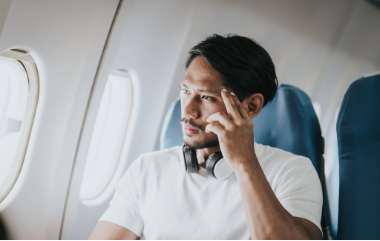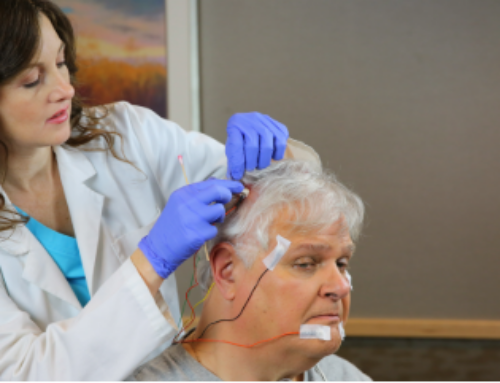Jet lag — it’s the unwelcome guest that often accompanies long-distance travel, leaving us feeling disoriented and fatigued. Whether you’re a frequent flyer or embarking on a once-in-a-lifetime journey, understanding how to mitigate jet lag’s effects is essential for a successful trip.
Understanding jet lag
Jet lag is a circadian rhythm sleep-wake disorder. It occurs when rapid travel across multiple time zones disrupts our internal body clock. Our circadian rhythms, synchronized by cues such as daylight and darkness, regulate our sleep-wake cycle, ensuring we feel alert during the day and sleepy at night. However, when we quickly travel across time zones, this synchronization is thrown off balance, leading to symptoms like daytime sleepiness, nighttime insomnia, fatigue and cognitive impairment.
The more time zones you cross, the more severe your symptoms may be. Adjusting to a new time zone tends to be harder when you travel east than when you travel west. It is estimated that it takes one day per time zone that you cross for your body to adjust to the local time.
While jet lag can affect anyone, pilots, flight attendants, and frequent business travelers often experience jet lag more frequently due to their extensive travel schedules. Some data suggest jet lag symptoms may be more severe and may last longer in older people.
Emerging evidence even suggests that jet lag can precipitate mood disturbances, with more depressive episodes after westward travel and manic episodes after eastward travel.
Strategies for reducing jet lag symptoms
Fortunately, several strategies can help minimize the impact of jet lag. Talk to a sleep doctor to determine if any of these options are right for you:
- Keep your home schedule: Sticking to your regular sleep-wake schedule, particularly for brief trips, can help reduce jet lag symptoms by allowing your body to maintain its accustomed rhythm.
- Use bright light: Bright light is an important cue that can affect the timing of your circadian rhythms. For example, exposure to bright light in the morning may help advance your sleep-wake schedule before you travel east. Conversely, inappropriately timed exposure to light and darkness during and immediately after travel can increase jet lag symptoms.
- Adjust your sleep schedule: You can help your body prepare for travel by adjusting your sleep schedule before your trip. For example, you can shift your sleep schedule earlier for a few nights before you travel east. Consider using an app, such as Timeshifter, to help you adjust your sleep schedule when traveling.
- Take melatonin: Melatonin is a hormone that helps regulate your sleep-wake cycle. Taking melatonin at bedtime for a few nights after your arrival may help you adjust to a new time zone when traveling east. Melatonin may not be helpful when traveling west less than 12 time zones.
- Consume caffeine: Caffeine may help improve alertness and reduce daytime symptoms of jet lag, but it also can disrupt your sleep at night.
In addition to these strategies, get plenty of sleep during the nights before your trip, avoid alcohol during your flight, maximize exposure to daylight upon arrival, and exercise before and after travel to help manage jet lag.
If you need help preparing for a long trip, talk to the sleep team at an accredited sleep center.
Medical review by Helena Schotland, MD
Related:
- Overcoming jet lag with the help of a computer program
- How technology is helping – and hurting – your sleep





